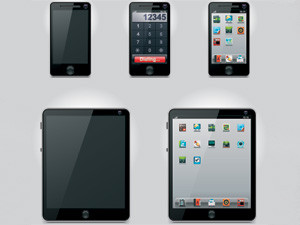
Businesses are increasingly meeting tech-savvy employees halfway, introducing flexible policies that accommodate changing attitudes towards technology.
This is according to the 2014 Cisco Connected World Technology Report, which noted the majority of generation X and Y (gen X and Y) professionals believe smartphones and wearable technologies will be the most important connected devices in the workplace by the year 2020.
In a statement released by the company, Cisco noted its report demonstrates "fundamental ways in which tech is shaping the future of work, and how devices, apps and solutions preferred by these generations are enabling new ways of working". This includes the rise of what the company terms the "supertasker" - an individual using up to four devices.
Kian Ellens, sales business development manager at Cisco SA, said the report gives insight into what the workforce cares about. "Businesses should grab this opportunity to re-examine how they need to evolve in order to attract top talent and shape their business models. Without a doubt, our world is changing to be much more Internet-focused, and becomes even more so with each new generation."
Future workplace
Some of the key findings looking to the future of the workplace note the following:
* Human resources (HR) professionals feel supertaskers increase the expectations of a "high performer" at their organisation and that they are best suited for a managerial role, an individual contributor or an executive role.
* About half of gen X and gen Y (millennial) professionals believe "supertasking" would make an individual more productive. Similarly, HR professionals (62%) predominantly believe they increase an organisation's productivity.
* Nearly two-thirds believe by the year 2020, supertasking will be most coveted by their organisation.
Gen X vs millennials
* Millennial professionals are more likely to indicate being "wired" differently than their gen X counterparts when it comes to efficiency and multitasking. More specifically, 56% of millennials note they are more efficient than gen X employees.
* More than four in 10 professionals believe gen Y employees are most effective at supertasking, relative to other generations.
* Sixty percent of gen X professionals and 81% of HR professionals think gen Y employees are able to perform tasks faster than older employees, using mobile devices and apps.
* Around seven in 10 HR professionals think gen Y employees are able to perform tasks faster if they are allowed to use their mobile devices and apps instead of desktop, laptop or notebook PCs.
Future HR and recruiting
* Nearly six in 10 (58%) HR professionals would be willing to hire a candidate by only interviewing the candidate using video conferencing (without ever conducting an interview in person).
* When asked of hiring managers in general, though, slightly less (50%) believe managers would be open to hiring someone without a face-to-face interview.
Always-on lifestyle
* More than half of gen X and Y professionals consider themselves accessible for work 24 hours a day, seven days a week, including three in 10 who are accessible by both e-mail and phone.
* Flexible working schedules are on the rise, with about a quarter of gen X and Y professionals indicating their organisation allows them to work from home.
* Gen Y professionals who have the opportunity to work remotely are more likely to prefer working from the office, relative to their gen X counterparts.
* Among those employed by organisations that allow them to work from home, more than four in 10 gen Y professionals note they are most focused and productive when working in the office.
Devices and wearables
* Gen Y professionals are slightly less likely to use their smartphone for phone calls, with about half (53%) using it for calls less than 25% of the time. This is compared to 43% of gen X workers and 36% of HR professionals.
* Bring-your-own-device (BYOD) is growing in prominence, with four in 10 HR professionals indicating all employees are allowed to connect any device to their network in order to do their jobs.
* Elsewhere, BYOD is still a privilege, with more than four out of 10 claiming only select individuals in their companies - such as executives or IT personnel - are allowed to connect to the device of their choice.
* Fifty-four percent of gen Y and 38% of gen X professionals first look at their smartphone when waking up. Additionally, roughly one in five from both groups would be most concerned about their smartphone if robbed.
'Death of the laptop' exaggerated
* If forced to choose one device, the largest proportion (40%) would select a laptop for both work and personal use.
* Only one-quarter of gen X and Y professionals believe Web sites will always be prominent in their lives. Meanwhile, 21% think Web sites will be replaced by apps, though they do not anticipate it to happen within the next five years.
* Among HR professionals, slightly less (17%) believe Web sites will always be prominent.
* On multiple occasions throughout the week, roughly one quarter indicate relying only on apps for an entire day.
* Facebook is the leading choice for sole social media application on smartphones.
* The largest proportion of respondents believes a worker's most important connected device will be a smartphone in the year 2020.
* In exchange for a free smartphone with unlimited data service, more than four in 10 would allow their carrier or service provider access to all of the data and information stored within the phone.
Share